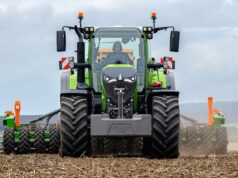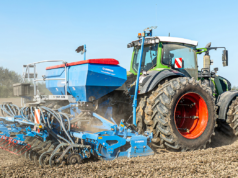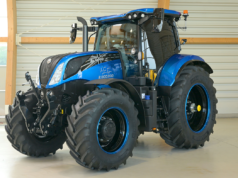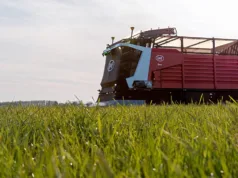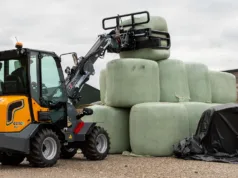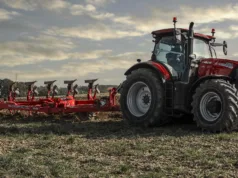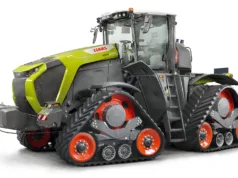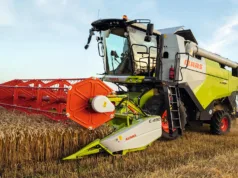
Trailblazers of mobile seed processing in the South West for more than 40 years, Evans & Pearce is all too aware of the nuisance crop contamination causes, especially when it prevents growers from achieving the crop’s full market value. And m anaging director Rob White had wanted, for a long time, to offer a different type of mobile, grain handling service; not for seed but for the processing of contaminated crops.
“At a meeting with our accountant, it was mentioned that a Leader grant – an EU initiative available to rural businesses hoping to create new employment opportunitie – was a potential funding opportunity,” Mr White said. “We had wanted to build a machine like this for 10 years, and securing the expressions of interest necessary for the grant convinced us the project had merit.
“The application was submitted and awarded, and with funding in place, the team put theory, sketches and ideas into a physical form, to prove it could and would work. Having built various versions of mobile seed processor over the years, drawing on more than 50 years of company expertise in agricultural R&D, the project quickly became reality.”
Monochromatic (black and white) sorters have been used in grain processing for years, but full colour spectrum sorters are less common, a mobile version of such a machine was not, to Evans and Pearce’s knowledge, available in the UK.
With key components in place, the build began in earnest in October 2018. Completed by mid-June 2019, and following a week of commissioning, the unit was ready for work. The full colour sorter has removed poppy seed pods from organic milling wheat, immature green wheat from barley destined for seed and oats from seed wheat, with work rates at 10-18t/hr.
“With each positive result we increase our confidence with the machines capability,” newly appointed operator Martyn Franks said. “It feels like we’re undertaking a lot of auditions at the moment. Once the colour sorter is set-up, the results and customer reaction are great to see.”
Mr White added the ethos at Evans and Pearce was giving farmers more from their harvested crop.
“Providing a nationwide service to grain producers, buyers, processors and end users that helps minimise deductions is a good thing for agriculture as a whole,” he said. “The chance to help growers sort an otherwise undervalued or rejected crop at a competitive price is opening up new conversations.
“It’s really positive to see this new venture proving so useful at an early stage. Having a mobile grain processor on the road, all year round now gives growers more options. Traditionally work was carried out by mobile seed processing units out of season where outputs could be slow and availability not always to the convenience of the customer. We’re already fulfilling contracts we would normally have rejected due to workload or inappropriate grading kit.”

The self-powered unit can help with any separation where a colour differential exists between desired and non-desired fractions.
For example, colour sorting can:
- remove ergot from cereals;
- sort different species;
- remove discoloured grains.
Or pre-clean to:
- reduce screenings in barley;
- remove weed seeds from beans;
- improve hectolitre weights of wheat.
Grain handling specialist Perry of Oakley helped design and build the custom intake, conveying and discharge augers. The Damas Sigma, high-output, vertical rotary pre-cleaner, enables quick basic separations (working at speeds of up to 50t/hr). The pre-cleaner alone has presented an opportunity to increase the machine’s scope of use; reducing screenings in malting barley and improved hectolitre weights for wheat are just two tasks it can handle.
A Japanese-designed, Satake Colour Sorter has been used. Dust and unwanted lights are removed during pre-clean, following which the grain passes two banks of cameras that are set up to reject certain colours and accept others; this can be done from previous saved settings or customised to the job in hand. One of 360 pneumatic ejectors then removes the unwanted colour from the product stream. The grading is extremely accurate and produces less grain wastage than traditional gravity or screening methods.
It is the perfect pre-cleaner for growers needing a low-cost, high-output grading service, with spot work rates in excess of 35t/hr. The throughput requires planning to utilise the potential, with three to four trailers needed to keep the machine fed and emptied.
For more information visit: www.evansandpearce.com.


